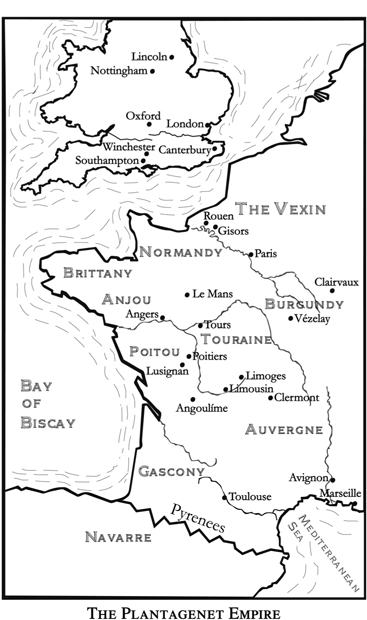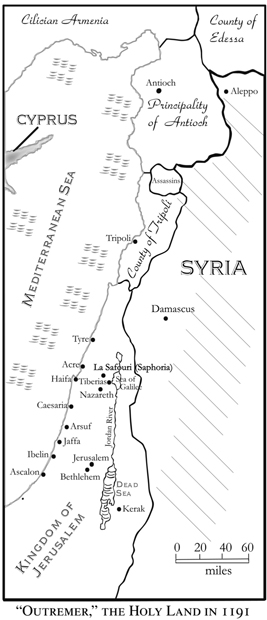Standard of Honor

PENGUIN CANADA
STANDARD OF HONOR
JACK WHYTE
was born in Scotland and emigrated to Canada in 1967. An actor, orator, singer, and poet, he is the author of the critically acclaimed Dream of Eagles series of novels set in post-Roman, fifth-century Britain. He lives in Kelowna, British Columbia.
Also by Jack Whyte
A DREAM OF EAGLES
The Skystone
The Singing Sword
The Eagles' Brood
The Saxon Shore
The Sorcerer, Volume I:
The Fort at River's Bend
The Sorcerer, Volume II:
Metamorphosis

Uther

THE GOLDEN EAGLE
Clothar the Frank
The Eagle

THE TEMPLAR TRILOGY
Knights of the Black and White


PENGUIN CANADA
Published by the Penguin Group
Penguin Group (Canada), 90 Eglinton Avenue East, Suite 700, Toronto, Ontario,
Canada M4P 2Y3 (a division of Pearson Canada Inc.)
Penguin Group (USA) Inc., 375 Hudson Street, New York, New York 10014, U.S.A.
Penguin Books Ltd, 80 Strand, London WC2R 0RL, England
Penguin Ireland, 25 St Stephen's Green, Dublin 2, Ireland (a division of Penguin Books Ltd)
Penguin Group (Australia), 250 Camberwell Road, Camberwell, Victoria 3124, Australia
(a division of Pearson Australia Group Pty Ltd)
Penguin Books India Pvt Ltd, 11 Community Centre, Panchsheel Park,
New Delhi â 110 017, India
Penguin Group (NZ), 67 Apollo Drive, Rosedale, North Shore 0632, New Zealand
(a division of Pearson New Zealand Ltd)
Penguin Books (South Africa) (Pty) Ltd, 24 Sturdee Avenue, Rosebank, Johannesburg 2196,
South Africa
Penguin Books Ltd, Registered Offices: 80 Strand, London WC2R 0RL, England
First published in a Viking Canada hardcover by Penguin Group (Canada),
a division of Pearson Canada Inc., 2007
Published in this edition, 2008
1 2 3 4 5 6 7 8 9 10 (OPM)
Copyright © Jack Whyte, 2007
Excerpt from
Order in Chaos
copyright © Jack Whyte, 2008
All rights reserved. Without limiting the rights under copyright reserved above, no part of this publication may be reproduced, stored in or introduced into a retrieval system, or transmitted in any form or by any means (electronic, mechanical, photocopying, recording or otherwise), without the prior written permission of both the copyright owner and the above publisher of this book.
Publisher's note: This book is a work of fiction. Names, characters, places and incidents either are the product of the author's imagination or are used fictitiously, and any resemblance to actual persons living or dead, events, or locales is entirely coincidental.
Manufactured in the U.S.A.
Library and Archives Canada Cataloguing in Publication data available upon request to the publisher.
ISBN: 978-0-14-301738-7
Except in the United States of America, this book is sold subject to the condition that it shall not, by way of trade or otherwise, be lent, re-sold, hired out, or otherwise circulated without the publisher's prior consent in any form of binding or cover other than that in which it is published and without a similar condition including this condition being imposed on the subsequent purchaser.
Visit the Penguin Group (Canada) website at
www.penguin.ca
Special and corporate bulk purchase rates available; please see
www.penguin.ca/corporatesales
or call 1-800-810-3104, ext. 477 or 474
For my wife, Beverley,
Endlessly patient, long-suffering,
encouraging, supportive, and inspiring
Every Frank feels that once we have reconquered the [Syrian] coast, and the veil of their honor is torn off and destroyed, this country will slip from their grasp, and our hand will reach out towards their own countries.
âAbu Shama, Arab historian,
1203â1267
A.D
.
The soldier of Christ kills safely: he dies the more safely. He serves his own interest in dying, and Christ's interests in killing!
âSt. Bernard of Clairvaux,
1090â1153
A.D
.


AUTHOR'S NOTE
W
here is France? If anyone were to ask you that question casually, you would probably wonder at the ignorance that must obviously underlie it, because you, of course, know exactly where France is, having seen it a thousand times on maps of one kind or another, and it has been there forever, or at least since the last Ice Age came to an end, about ten thousand years ago. So clearly, anyone with a lick of education ought to know where it is without having to ask. And yet, as a writer of historical fiction, I have been having trouble with that question ever since I began to deal with it, because I feel an obligation to maintain a standard of accuracy in the background to my stories, and yet, were I to stick faithfully to the historical sources and absolutes in writing about medieval France, Britain, and Europe, I would be bound to perplex most of my readers, whose simple wish, I believe, is to be amused, entertained, and, one hopes, even fascinated for a few hours while absorbing a reasonably accurate tale about what life was like in other, ancient times.
In writing my Arthurian novels, for example, I was forced to accept and then to demonstrate that the French knight Lancelot du Lac could not have been French in fifth-century, post-Roman Europe, and could
not possibly have been called Lancelot du Lac (Lancelot of the Lake) because the country was still called Gaul in those days and the French language, the language of the Franks, was the primitive tongue of the migrating tribes who would one day, hundreds of years in the future, give their name to the territories they conquered.
I have had the same difficulty, although admittedly to a lesser degree, in writing this book, because although the country, or more accurately the geographical territory known as France, existed by the twelfth century, it was a far cry from being the France we know today. The Capet family was the royal house of France, but its holdings were still relatively small, and the French king at the time of this story was Philip Augustus. Philip's kingdom was centered upon Paris and extended westward, in a very narrow belt, to the English Channel, and it had only just begun to develop into the state it would become within the following hundred and fifty years. At the beginning of the twelfth century, it was still tiny, hemmed in by powerful duchies and counties like Burgundy, Anjou, Normandy, Poitou, Aquitaine, Flanders, Brittany, Gascony, and an area called the Vexin, which bordered France's northern border and would soon be absorbed into the French kingdom. The people of all these territories spoke a common language that would become known as French, but only the people who lived in the actual kingdom of France called themselves Frenchmen. The others took great pride in being Angevins (from Anjou), Poitevins, Normans, Gascons, Bretons, and
Burgundians. (Richard Plantagenet, the Duke of Aquitaine and Anjou, in many ways was wealthier and far more potent than the French king. Upon the death of his father, King Henry II, Richard would become King of England, the first of his name, the paladin known as Richard the Lionheart, and he would rule an empire built by his father and his mother, Eleanor of Aquitaine, that was far greater than the territories governed by King Philip.)